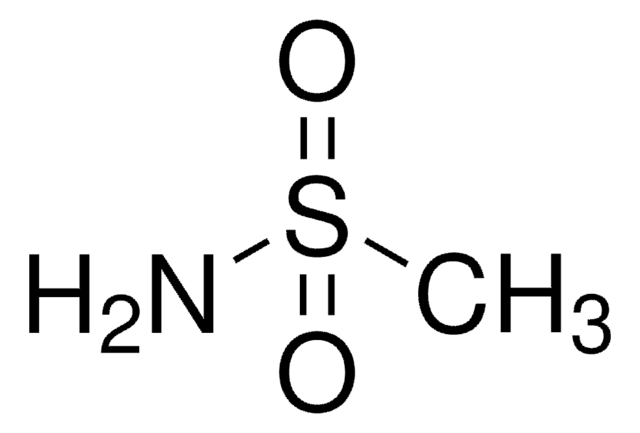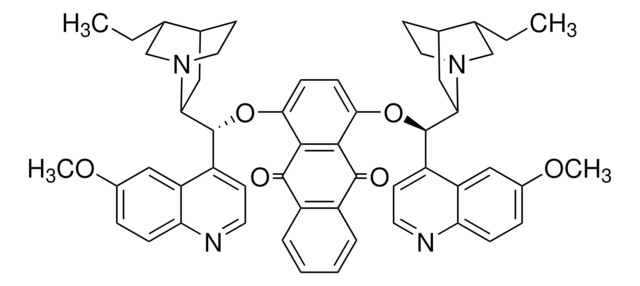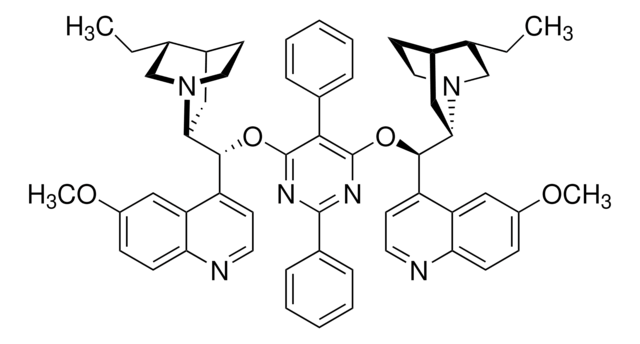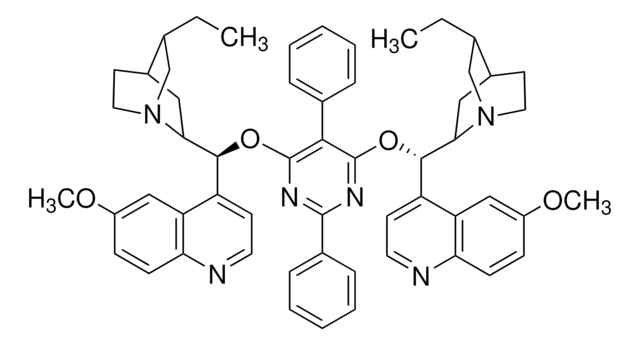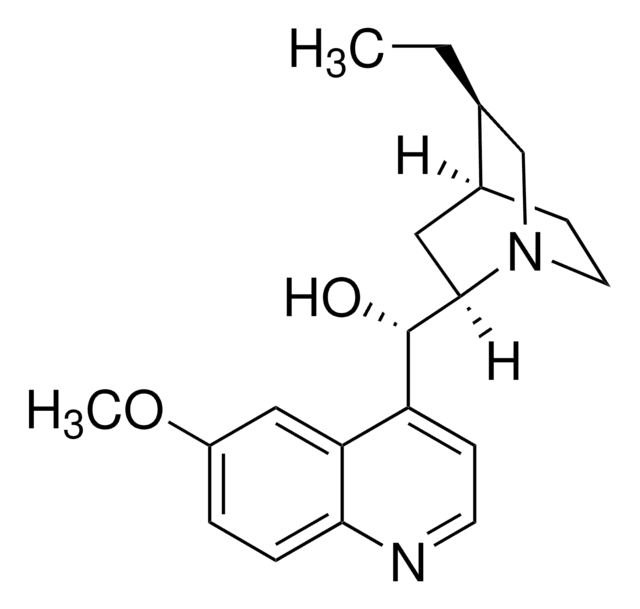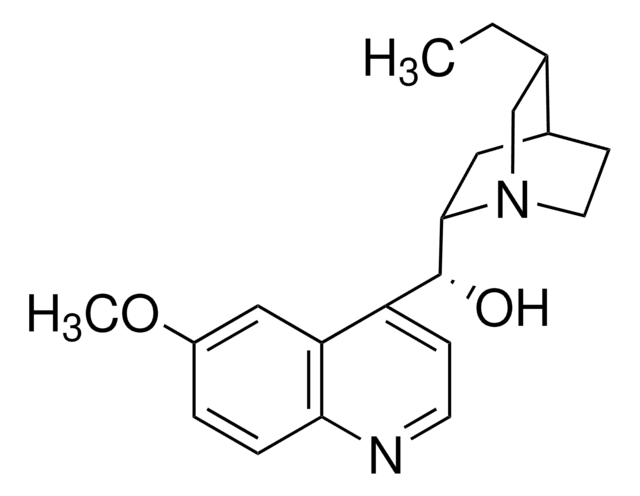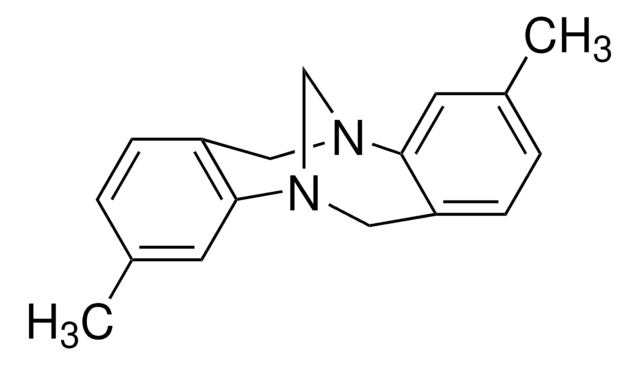392723
(DHQ)2PHAL
≥95%
Synonym(s):
Hydroquinine 1,4-phthalazinediyl diether
About This Item
Recommended Products
Quality Level
Assay
≥95%
optical activity
[α]22/D +336°, c = 1.2 in methanol
mp
178 °C (dec.) (lit.)
SMILES string
CC[C@@H]1CN2CCC1CC2[C@H](Oc3nnc(O[C@@H](C4CC5CCN4C[C@@H]5CC)c6ccnc7ccc(OC)cc67)c8ccccc38)c9ccnc%10ccc(OC)cc9%10
InChI
1S/C48H54N6O4/c1-5-29-27-53-21-17-31(29)23-43(53)45(35-15-19-49-41-13-11-33(55-3)25-39(35)41)57-47-37-9-7-8-10-38(37)48(52-51-47)58-46(44-24-32-18-22-54(44)28-30(32)6-2)36-16-20-50-42-14-12-34(56-4)26-40(36)42/h7-16,19-20,25-26,29-32,43-46H,5-6,17-18,21-24,27-28H2,1-4H3/t29-,30+,31-,32+,43-,44-,45-,46-/m1/s1
InChI key
YUCBLVFHJWOYDN-PPIALRKJSA-N
Looking for similar products? Visit Product Comparison Guide
General description
Application
- As a catalyst Asymmetric and chemoselective N-allylic alkylation of indoles with Morita-Baylis-Hillman carbonates to form pyrrolo[1,2-a]indole and pyrrolo[3,2,1-ij]quinoline derivatives.
- As a ligand for the osmium catalyzed-Sharpless asymmetric dihydroxylation step of (S)-a-benzoyloxy carboxylic acids multistep synthesis.
- As a ligand for the carbamate based asymmetric aminohydroxylation of styrene derivatives to form N-carbamate protected R-arylglycinols.
Physical form
Signal Word
Warning
Hazard Statements
Precautionary Statements
Hazard Classifications
Skin Sens. 1
Storage Class Code
11 - Combustible Solids
WGK
WGK 3
Flash Point(F)
Not applicable
Flash Point(C)
Not applicable
Personal Protective Equipment
Regulatory Listings
Regulatory Listings are mainly provided for chemical products. Only limited information can be provided here for non-chemical products. No entry means none of the components are listed. It is the user’s obligation to ensure the safe and legal use of the product.
JAN Code
392723-VAR:
392723-500MG:
392723-BULK:
392723-50G:
Choose from one of the most recent versions:
Already Own This Product?
Find documentation for the products that you have recently purchased in the Document Library.
Customers Also Viewed
Articles
Asymmetric phase-transfer catalysis (PTC) has been recognized as a “green” alternative to many homogeneous synthetic organic transformations, and has found widespread application. Synthetically modified cinchona alkaloids are typical chiral organocatalysts used in asymmetric PTC.
Related Content
The Sharpless Lab pursues useful new reactivity and general methods for selectively controlling chemical reactions.
Our team of scientists has experience in all areas of research including Life Science, Material Science, Chemical Synthesis, Chromatography, Analytical and many others.
Contact Technical Service


